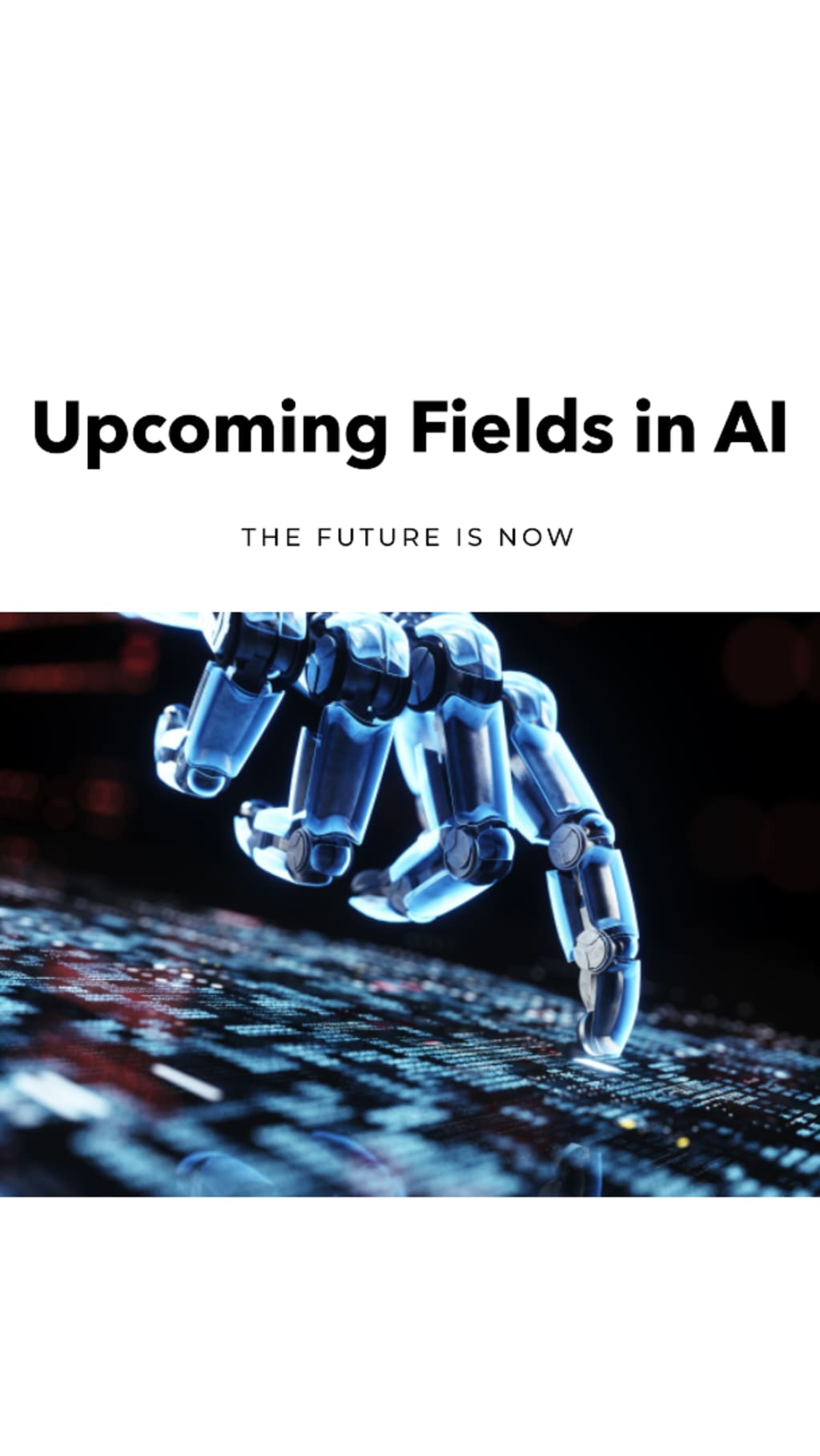Upcoming Fields in AI
Exploring the Frontiers: Unveiling the Next Generation of AI

Artificial Intelligence (AI) has been rapidly evolving and impacting various industries, revolutionizing the way we live and work. As we look ahead, several emerging fields within AI are poised to shape the future. In this article, we will explore some of these upcoming fields and their potential implications.
1. Generative AI: Generative AI focuses on creating AI systems capable of generating original content, such as images, music, and even entire stories. Through techniques like generative adversarial networks (GANs), AI can mimic and create realistic content indistinguishable from human creations. This field holds great promise in areas such as art, entertainment, and design.
2. Explainable AI: Explainable AI aims to enhance transparency and trust in AI systems by providing understandable explanations for their decisions. As AI becomes more pervasive in critical domains like healthcare and finance, it is essential to understand why AI models make specific predictions or recommendations. Explainable AI techniques enable human users to comprehend and validate AI decisions, ensuring accountability and mitigating biases.
3. Edge AI: Edge AI refers to the deployment of AI algorithms and models directly on edge devices, such as smartphones, IoT devices, and autonomous vehicles. By processing data locally on these devices, Edge AI reduces latency, enhances privacy, and enables real-time decision-making. This field enables a wide range of applications, including autonomous vehicles, smart homes, and industrial automation.
4. Federated Learning: Federated Learning addresses the challenge of training AI models using decentralized data sources. Instead of collecting data in a central repository, Federated Learning allows AI models to be trained locally on individual devices while preserving data privacy. This approach has significant implications for healthcare, finance, and other sensitive domains where data privacy is paramount.
5. AI for Cybersecurity: With the increasing number of cyber threats, AI is becoming a crucial tool in defending against attacks. AI-powered cybersecurity systems can detect anomalies, identify patterns, and respond rapidly to mitigate risks. AI can analyze vast amounts of data, identify potential vulnerabilities, and adapt to evolving attack techniques. The field of AI for cybersecurity is continuously evolving to stay one step ahead of cybercriminals.
6. Human-AI Collaboration: Human-AI Collaboration explores the interaction and collaboration between humans and AI systems. Rather than replacing humans, AI is seen as a tool to augment human capabilities and enhance productivity. This field focuses on designing intuitive interfaces, enabling natural language communication, and creating collaborative systems that combine human creativity with AI's analytical capabilities.
7. AI in Healthcare: AI has transformative potential in healthcare, from diagnosis and treatment to personalized medicine and drug discovery. Machine learning algorithms can analyze medical images, predict disease outcomes, and assist in surgical procedures. AI can also leverage vast amounts of patient data to identify patterns and suggest personalized treatment plans. The integration of AI into healthcare has the potential to revolutionize patient care and improve outcomes.
8. AI in Agriculture: As the global population continues to grow, AI can play a crucial role in optimizing agricultural processes. AI-powered systems can monitor crops, predict pest outbreaks, optimize irrigation, and enhance yield predictions. By leveraging AI algorithms, farmers can make data-driven decisions, reduce resource wastage, and ensure sustainable agriculture practices.
9. AI Ethics: With the increasing influence of AI in society, the field of AI ethics is gaining prominence. Ethical considerations in AI involve addressing issues such as fairness, transparency, bias, and accountability. As AI systems make decisions that impact individuals and communities, it is crucial to ensure that AI is developed and deployed responsibly, with a focus on societal well-being and ethical guidelines.
10. Quantum AI: Quantum AI combines the principles of quantum computing with AI algorithms, opening new possibilities for solving complex problems. Quantum computers can potentially process vast amounts of data and perform computations exponentially faster than classical computers. This field holds promise





Comments
Rudra Bhatia is not accepting comments at the moment
Want to show your support? Send them a one-off tip.